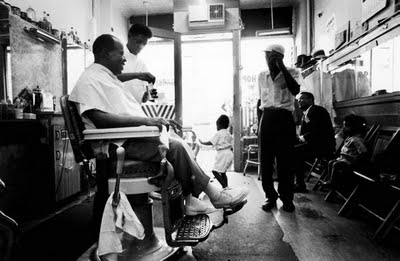 As if putting up with one set of reviews in a single year hadn’t been enough, I’m now in the process of finding out what my colleagues think of Pops: A Life of Louis Armstrong. So far the news has been highly gratifying, and over the weekend I scored another pair of raves.
As if putting up with one set of reviews in a single year hadn’t been enough, I’m now in the process of finding out what my colleagues think of Pops: A Life of Louis Armstrong. So far the news has been highly gratifying, and over the weekend I scored another pair of raves.
The English edition of Pops is already out, and Robert Sandall called it “terrific” in the Sunday Times of London:
Teachout is especially good at exposing the difficulties that Armstrong experienced with critics and fellow musicians after he became famous. On his first tour of Britain in 1932 he was on one hand hailed as an innovator–“as modern as James Joyce”–and on the other dismissed as a circus act. The Daily Express man complained that “he looks and behaves like an untrained gorilla”. Another commentator mocked his “clean-shaven hippopotamus physiognomy.”
As time went by, opinion became even more polarised. Philip Larkin lauded him as “more important than Picasso”; Le Corbusier called him “equilibrium on a tightrope”. Meanwhile, a growing chorus of reviewers objected to the film roles, hit records and funny-guy stage patter. “Now he is a one-man show: comedian, jivester, and lastly musician,” was a widely voiced put-down. These jibes hurt. Armstrong was a far more shaded character than his sunny public persona let on. Teachout’s access to a previously unavailable archive of taped conversations and writings has allowed him to construct the most complete picture yet of a well-studied subject. In particular he captures Armstrong’s deep ambivalence to his predicament as a black celebrity in an industry run by whites….
Read the whole thing here.
Meanwhile, Ted Gioia, a much-admired jazz critic and historian who is also a professional jazz pianist, reviewed the American edition of Pops in the new issue of the Weekly Standard. The complete text of his review is only available to subscribers, but here are some pertinent excerpts:
Finally–almost four decades after Armstrong’s death in the summer of 1971–we have a biography that does justice to the man and his music….
Teachout is an astute critic who knows jazz deeply–and has even played it as a bassist–but is largely immune to the increasingly inward-focused attitudes that hinder the effectiveness of so many contemporary critics. He has previous biographies of H. L. Mencken and George Balanchine to his credit, and has written strong, supple criticism of dance, theater, and cinema. In short, Teachout seems perfectly suited to tackle this seminal figure whose career rarely stayed within the usual boundaries of jazz.
Teachout captures this broader context with great skill. His rich cast of characters includes not only musicians and record industry figures, but criminals and monarchs, TV personalities and movie stars. We follow Armstrong at a 1932 performance with King George V in attendance, tossing off the intro “This one’s for you, Rex”–then playing (unthinkingly?) “I’ll Be Glad When You’re Dead, You Rascal, You!” Elsewhere, we get a detailed look–the best I have read anywhere–of Armstrong’s dealings with the Mob. This artist first made his reputation in Al Capone’s Chicago, and even at the end of his life, his financial situation was affected by underworld influences. At other points we encounter Sammy Davis Jr., Johnny Cash, Leonard Bernstein, Bing Crosby, and Pope Pius XII, among other names worth dropping. My favorite anecdote tells of Herbert von Karajan berating the Vienna Philharmonic because its players can’t maintain a tempo as well as Armstrong’s band.
Teachout delivers a taut and well-paced work that is astute in its critical judgments and gripping in its chronicle of the trumpeter’s life and times….
I warned Mrs. T (who is new at this game) that the other shoe is bound to drop sooner or later, but so far, so good.
I’ve also been keeping an eye on the reader reviews of Pops posted on Amazon. Twenty-three had appeared as of this morning, all but one of them favorable. Some are smart, others less so, while a couple are decidedly, even amusingly off the wall. My guess, though, is that the average customer rating posted on Amazon’s Pops page is more important to potential buyers than any individual review, and as of this morning it stands at four-and-a-half stars out of a possible five.
As for print-media reviews, everybody in the business is wondering how much they matter these days. Probably not as much as they used to, and very possibly not much at all, though nobody knows for sure. All I can tell you is that good ones don’t hurt, and they’re a hell of a lot more fun to read than bad ones.
